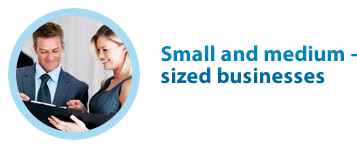July questions and answers
Newsletter issue - July 2020.
Q. I have been contacted by coronavirus (COVID-19) Test and Trace. Am I eligible for statutory sick pay (SSP) from my employer?
A. Under the test and trace system that launched on 28 May, a person who has been notified that they have had contact with a person with coronavirus is requested to self-isolate for 14 days. The rules relating to SSP have been amended to include employees who are self-isolating in these circumstances.
If you have been working from home and are not furloughed, you may be able to continue working and should receive full pay, as normal. If this does not apply and your employer does not have a company sick pay scheme, then under new laws from 28 May 2020, you may be entitled to receive SSP for every day you are in isolation - from the first day - as long as you meet the eligibility conditions. This is the case whether or not you go on to develop symptoms.
If you were already on furlough when you were contacted by the test and trace service, you should discuss with your employer whether it is best for you to be kept on furlough or moved over to SSP - although there seems to be some flexibility, you cannot receive both at the same time. One consideration is that employers are required to pay SSP themselves, although may qualify for a rebate for up to two weeks of SSP. If employers keep a 'sick' furloughed employee on furlough, they remain eligible to claim at least a proportion for these costs through the furlough scheme.
Q. I have owned and rented out a residential property for the last ten years, which I am now considering selling. I will use the proceeds to purchase another rental property. Will I have to pay capital gains tax on the proceeds from the sale even if all the money is reinvested in another property that is also let?
A. Yes, you will be liable to capital gains tax on the gain arising on the sale, even though you will be reinvesting the money in another property that is also let. Rollover relief is available for residential investment property only in relation to qualifying furnished holiday lettings, and for compulsory purchases. If your property is in the UK you will need to report and pay any capital gains tax within 30 days of completing the sale.
Q. My business is struggling financially due to the impact of the coronavirus (COVID-19) and I am considering applying for a grant being made available by the government via local authorities. Would this income be subject to VAT?
A. Whilst HMRC have not confirmed the VAT implications in any of their announcements, the basic principles of supply and consideration can be expected to apply. VAT is a tax on supplies for consideration, so where a grant is made, and nothing is expected to be done in return it will not be subject to VAT.
Grant funding can be a complex area in some circumstances as it is common for funding bodies to use the term 'grant' when, in reality, it is payment for a contractual obligation. However, the business support funding being made available to mitigate the impact of Covid-19 does not fall into this category and will be outside the scope of VAT.
Details of various Government support measures available for business can be found online at https://www.gov.uk/government/publications/coronavirus-covid-19-business-support-grant-funding-guidance-for-businesses.
 Cookies are small text files that are stored on your computer when you visit a website. They are mainly used as a way of improving the website functionalities or to provide more advanced statistical data.
Cookies are small text files that are stored on your computer when you visit a website. They are mainly used as a way of improving the website functionalities or to provide more advanced statistical data.









